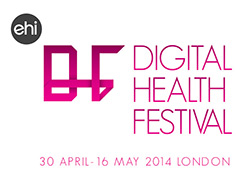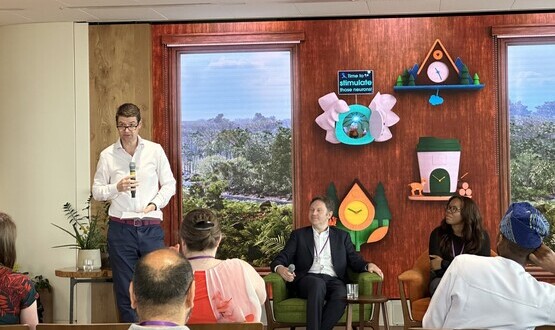Assisting with mentoring
- 28 April 2014

For those who want to carve out a career in healthcare informatics, technical knowledge is often – and understandably – seen as a priority.
Yet leadership and governance skills are becoming increasingly important as IT and information experts take up more positions on the boards of trusts and other healthcare organisations.
As this happens, the sector needs to think more about how it mentors and develops its leaders of the future – a fact that is not lost on BCS Assist chair Wendy Dearing.
“For some people, there is that jump from being a technical expert to thinking about the fact that they could be sitting at the top table or as a board member,” she says. “Making that jump comes with the need for leadership skills.”
Opening networks for the next generation
BCS Assist, a member group of the Chartered Institute for IT, provides a network for the approximately 1,800 employees working in the health and social care informatics sector.
The organisation recently launched a mentoring scheme, offering young professionals access to mentors with a wide range of experience on a monthly basis.
Dearing’s first experience of mentoring came “many years ago” as a young nurse, when she worked with a preceptor as part of a “buddy system” to provide guidance and support to newly qualified nurses.
Her belief in the power of a good mentor grew when she was taken under the wing of a high-profile figure who helped her to build her career as part of a mentoring programme.
“It gave me my own experience of how good mentoring could be: it was just about having that sounding board and someone who could open networks for us. She got us into the House of Lords and other places like that, so I know how beneficial it can be.”
Dearing says BCS Assist decided to create its mentoring programme after it noticed a gap between the strong networks in place for chief clinical information officers and other current leaders, and a lack of those same networks for developing professionals.
“The programmes are great for that generation, but where’s the next generation coming from? If we’ve got a captive audience of chief information officers somewhere; we have to use them to facilitate the growth of the next generation.”
A protected space and shared connections
To Dearing, one of the most important advantages that a mentor provides is the ability to provide a “protected time and space” for professionals to safely share their experiences. In this bubble, they can get advice on issues that are important to them but which they may not want to ask a manager in their own organisation.
“If you ask your line manager about your next career move, that could make them a little worried. With a mentor, you’ve got that independent voice that can really help a mentee out.”
Equally valuable is the ability of mentors to share their connections, providing access to networks that they would otherwise be unable to reach.
“It is invaluable to have the opportunity to open up those networks at the next level so your face is known, because it is ultimately all about relationships and connections – that’s what gives you the confidence to apply for your next job.”
The benefits are not all one way, of course: Dearing herself has got a great deal of pleasure from hearing the many success stories of those who have gone through her mentoring courses or who she has mentored herself.
“You really see people develop and grow, and get the confidence they need. People tell me that they got the job of their dreams because they’ve been able to trust their mentors, because they’ve been able to get the right advice. For some people, it transforms their lives – and that’s what you want to hear.”
Making the most of a mentor
So how can young professionals give themselves that chance for transformation? Dearing’s most important piece of advice to those who are looking for a mentor is to “grab the opportunity”; to approach industry figures they respect who may be able to give up some time to help them out.
“The mentee probably won’t know what they don’t know, so it’s about having the courage to ask the right questions and have those conversations.”
Equally important is building up a connection that will endure over the years, as a good mentor is valuable no matter how far into your career you are.
“If you look at other leaders like politicians and sportsmen, they have those trusted advisers who they can go back to when they need advice.
“You want to know that later on in your career, whether it’s ten years or so [after the initial contact], you can go back and ask that question that you need an answer to.”
Dearing hopes that at least some of these answers will be provided at the BCS Assist Mentoring Day.
The day will include speeches from Gwyn Thomas, a professional leadership development coach, mentor and trainer, with many years of public sector experience, an interactive session on what makes a good mentor and mentee, and possibly “a little bit of speed-dating” to connect those who need support with those who can provide it.
Dearing says BCS Assist is “starting small” with its mentoring scheme. But it hopes this will lead to a leap forwards when it comes to nurturing and developing some of e-health’s future leaders.

The BCS Assist Mentoring Day is taking place at the Conference Park in Birmingham on 15 May 2014.
Full details of the event and the other conferences, meetings and social media chats taking place as part of the Digital Health Festival are on its website.
Full details of the Digital Health Festival are on its website. Don’t forget about the EHI Pub Quiz, which takes place in King’s Cross, London, on 14 May; we look forward to seeing you there!




